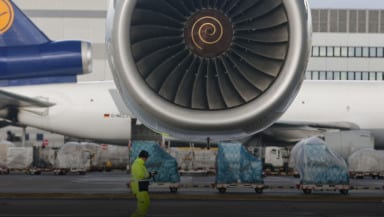Has paying a few quid to carbon offset your travel often felt like a con? Can paying an extra £2 each time you fly for some tree planting scheme really make your flight “carbon neutral”?
As the old saying goes: if it’s too good to be true, it probably is. But that’s not stopped airlines making bold claims.
EasyJet claims it can operate “net-zero carbon flights”. Delta says it’s going to become the “first carbon neutral airline globally”. British Airways now allows its customers to pay a small fee to “fly carbon neutral”.
But a joint investigation by the Guardian and Greenpeace’s Unearthed found that these major airlines are exaggerating the benefits of the carbon offsetting schemes they offer to passengers.
What is carbon offsetting?
Carbon offsetting relies on the idea that something can be “carbon neutral” if someone pays to “cancel out” emissions by supporting a green initiative somewhere else in the world. This could be, say, preserving a forest that would otherwise have been cut down. Or planting a tree – or trees – that will magically suck up the CO2 emitted by that flight.
But can we really justify polluting in one area by promising – and it really is only promising – to clean up or look after another? After all, the carbon pollution is still going into the atmosphere from the flight. And it’s still causing climate change.
And how does an offsetting project know which bit of forest is due to be chopped down anyway? This, it turns out, is one of the biggest problems with the airlines’ carbon offsetting schemes examined by the investigation.
What’s wrong with the airlines’ carbon offsetting schemes?
Our investigation found problems in how the carbon savings were calculated by the projects. United Airlines, British Airways and EasyJet were all found to be supporting offsetting projects that were “saving” forests that weren’t really under threat, or investing in schemes that aren’t even expected to last long enough to effectively offset the emissions created by fossil fuels.
Some offsetting schemes are being run by companies that clearly have their own agenda. For example, one EasyJet-backed offsetting project in the Peruvian Amazon is being run by two logging companies that have built new roads through the rainforest, and that are targeting tree species declared “vulnerable” by the IUCN red list.
Yep, a forest protection scheme run by logging companies. Logging companies targeting endangered trees.
“It’s a scandalous situation,” Philip Fearnside, an ecologist at the National Institute for Research in Amazonia, said about the current state of the voluntary carbon offsetting system. “Most of this is pure public relations.”



